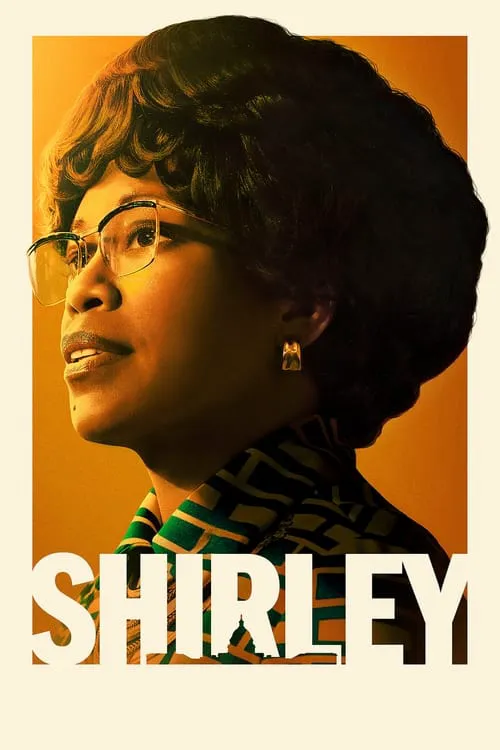Shirley

Plot
Set in the late 1960s, the biographical drama film 'Shirley' tells the story of Shirley Chisholm, a trailblazing Black politician who defied the odds to become the first woman of color elected to Congress. The film follows Chisholm's relentless pursuit of the presidency in 1972, challenging the entrenched male-dominated Democratic Party. The movie begins with Chisholm's early life, showcasing her humble beginnings, growing up in Barbados and eventually emigrating to Brooklyn with her mom, Charlotte, and sister, Carolyn. Chisholm finds solace in her education, graduating from Brooklyn College and later earning a master's degree in sociology from Columbia University. Her intellectual prowess and passion for social justice lay the foundation for her future political endeavors. Upon moving to New York City, Chisholm becomes entrenched in the city's vibrant community, connecting with residents, listening to their concerns, and empowering them to participate in the democratic process. With her charisma and unwavering dedication to justice, she begins to build a name for herself in the local politics circle. The pivotal turning point in Chisholm's career comes when she secures a seat in the New York State Assembly in 1964. With her exceptional debating skills and relentless advocacy for policy changes aimed at uplifting marginalized communities, Chisholm quickly gains recognition from her colleagues and community leaders alike. In 1968, Chisholm sets her sights on the U.S. House of Representatives, becoming the first Black woman to run in a major party primary. Despite her initial loss, she refuses to be deterred and continues to challenge systemic injustices and build a formidable coalition of African American leaders, social activists, and influential women like Bella Abzug and Eleanor Holmes Norton. Chisholm's groundbreaking run for Congress in 1968 is eventually rewarded, and she becomes the first Black woman elected to the U.S. House of Representatives. This historic achievement sparks a renewed sense of determination in Chisholm to take on higher leadership roles within the Democratic Party. The pivotal year 1972 arrives, and Chisholm announces her candidacy for the Democratic presidential nomination, defying the party's powerful leaders and breaking down barriers for women and minorities everywhere. Her bold decision sparks skepticism, ridicule, and even outright resistance from those who doubt her ability to succeed. However, with unwavering conviction and her extraordinary oratory skills, Chisholm captures the hearts of millions of Americans who have grown disenchanted with traditional party politics. Her message of unity, equality, and progressive social change resonates with a generation that's increasingly restless and eager for change. Throughout her presidential campaign, Chisholm faces a multitude of challenges from party leaders, rival candidates, and the media themselves, who dismiss her candidacy as an unviable pipe dream. Still, Chisholm refuses to back down, instead doubling her efforts to connect with voters, amplify her message of hope, and challenge the entrenched status quo within the Democratic Party. 'Shirley' poignantly captures the spirit of Chisholm's courageous pursuit of the presidency, shedding light on the many triumphs and heartbreaks that accompany her journey. By weaving together Chisholm's remarkable personal and professional story, the film honors her legacy, illuminating the complexities and nuances that shaped her unwavering determination to break new ground and challenge the system. The biographical drama effectively brings to life this groundbreaking chapter of American politics, revealing the immense courage, resilience, and conviction that Chisholm embodied throughout her remarkable life. Her pioneering spirit serves as a testament to the transformative power of courageous action and leadership.
Reviews
Recommendations




